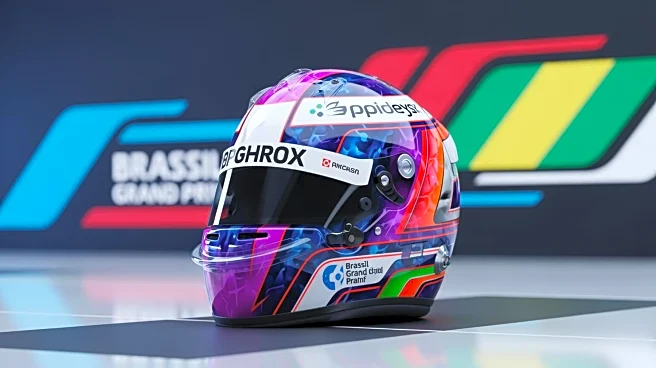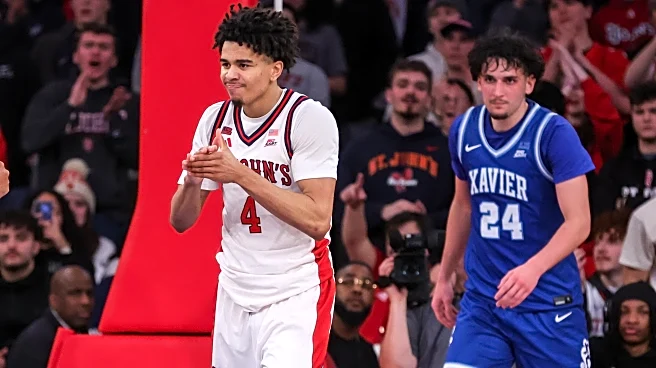What's Happening?
Max Verstappen, driver for Red Bull Racing, is set to compete in the upcoming Brazilian Grand Prix in São Paulo with a custom helmet featuring traditional Brazilian colors. The race, scheduled for November
7-9, holds personal significance for Verstappen, as his wife's family is from Brazil. Verstappen has previously won the Brazilian Grand Prix in 2019, 2023, and 2024. As of November 4, 2025, the Formula 1 Drivers' Championship standings are led by McLaren's Lando Norris, with Verstappen in third place. The custom helmet is a tribute to the country's racing heritage and Verstappen's personal connection to Brazil.
Why It's Important?
Verstappen's decision to wear a custom helmet highlights the cultural and personal connections that drivers often have with the locations they race in. This gesture not only celebrates Brazil's rich motorsport history but also strengthens Verstappen's bond with the local fanbase. The Brazilian Grand Prix is a key event in the Formula 1 calendar, and Verstappen's participation with a custom helmet adds a layer of personal significance to the race. As the championship battle continues, such gestures can enhance a driver's popularity and support among fans, potentially influencing their performance and motivation.
What's Next?
The Brazilian Grand Prix will be a crucial race in the ongoing championship battle, with Verstappen aiming to close the gap on the leaders. His performance in São Paulo could significantly impact the championship standings, as the season nears its conclusion. Fans and analysts will be watching closely to see how Verstappen's personal connection to Brazil influences his performance on the track. The custom helmet may also serve as a symbolic gesture, motivating Verstappen to deliver a strong performance in a country that holds personal significance for him.
Beyond the Headlines
Verstappen's custom helmet underscores the intersection of personal identity and professional sport, highlighting how cultural connections can enrich the racing experience. This gesture reflects the broader trend of athletes using their platforms to celebrate cultural heritage and personal stories, fostering deeper connections with fans and communities. As Formula 1 continues to expand its global reach, such personal tributes can enhance the sport's cultural resonance and appeal, contributing to its growth and popularity worldwide.










